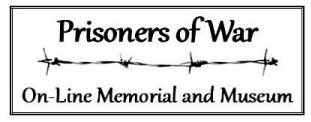Wright, G W
George Wilson Wright
Subject: POW at Lamsdor
Gunner George Wilson Wright, Royal Artillery (Light Air Defence) Service No 4131261.
My Great Aunt – whom he married immediately upon return from the War in September 1945 once told me that literally every night after the war until his death, he awoke screaming due to nightmares of his wartime experiences.
Fought in North Africa and captured following the fall of the Bir Hachiem pocket, where he fought alongside French Foreign Legion and Gurkha troops. In about 1947, two years after returning home, he received the Croix de Guerre with Bronze Star in the post, for his bravery at Bir Hachiem, where a French Officer apparently witnessed his manning a Bofors AA gun and fighting off repeated Stuka attacks when the rest of his crew were dead or wounded. The act was aparrently enough for the French officer to progress the Award some years later, presumably after his own capture and internment.
He saw Erwin Rommel when he visited POW cage in desert right after the battle. Said Rommel ordered his soldiers to give pow’s a can of fruit each as they had been brave opponents and had been starving in the encirclement. Transferred via Italy to Lamsdorf. Moved from there to Katowice; spent time in POW Camp on perimeter of Auschwitz and sent to Dresden for body recovery following Allied raids.
Was on POW train transport in Regensburg rail yard when it was heavily bombed by USAF and many killed.
Eventually forced onto “Death March” ahead of advancing Russians. Starved of rations, guards dropped bread at roadside and shot any prisoner who tried to pick it up.
Used as forced labour in Lead Mines and for sugar beet harvests. POWs had habit of riding on top of harvested beets and kicking off some to be picked up by starving locals who stood at roadside. Uncle George seen by Guard kicking sugar beet off wagon to old woman at roadside and saved from being shot by being pulled onto the load bed by his mate.
Whilst on March, George and mate sneaked away from column and hid in woods. Location somewhere in Germany. Spent time hiding and making way west to allied lines and eventually met up with US soldiers.
Returned to Workington, Cumbria at war end. Married my Gt Aunt and returned to work as engine driver at British Steel, Workington until retirement. Much of this info gained from my Aunt after George’s death.
When I knew him in later life he rarely spoke of the war beyond odd tales which were severely edited for us children but thinking back, he did reveal that he used his AA gun in ground defence role against German vehicles and he did say he saw too many people cross the boundary wire and run onto the electric fence, seeking death rather than remain prisoner. He also just once mentioned crematoria chimneys belching smoke.
It didn’t occur to me at the time but electric fences would not be common in POW camps, neither would crematoria. I now believe these were memories of the Extermination Camp.
Peter Huddart (Great Nephew)
Suggest an improvement to this record
